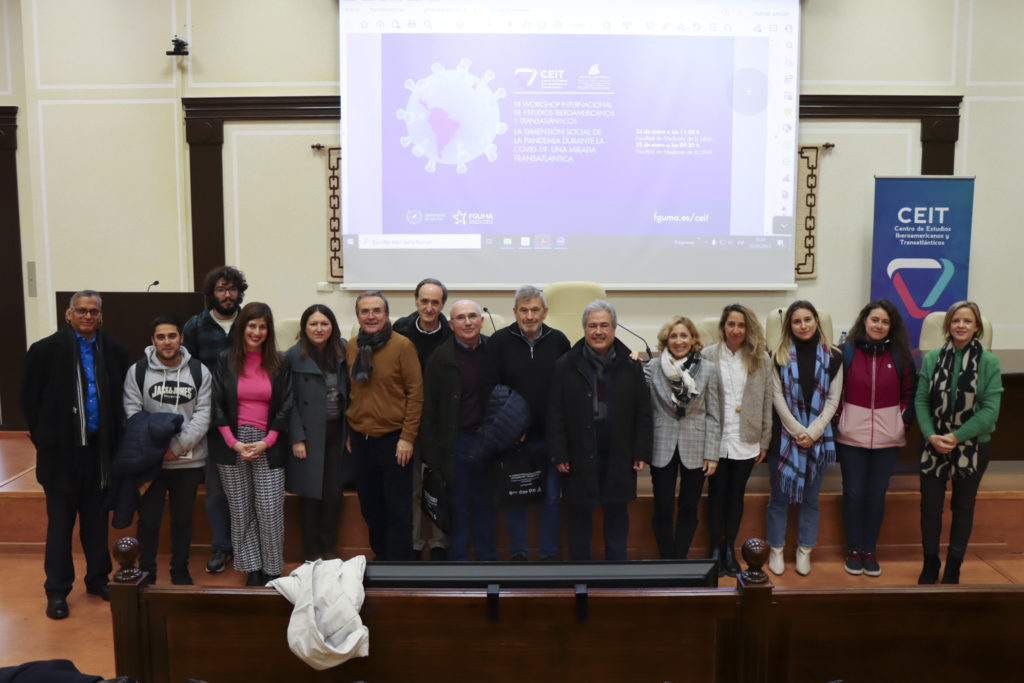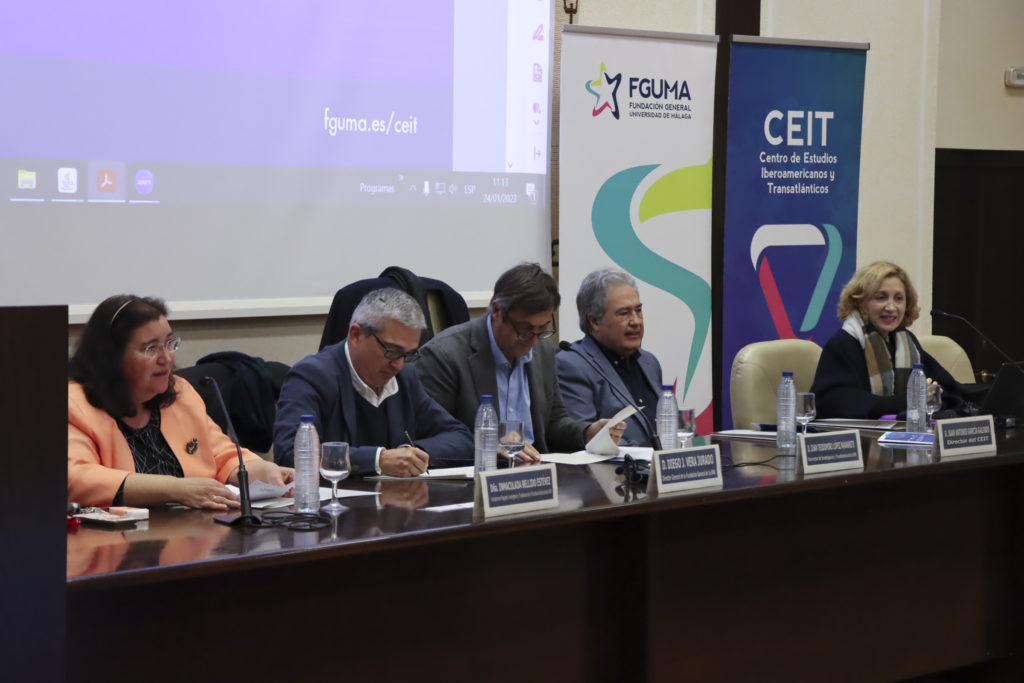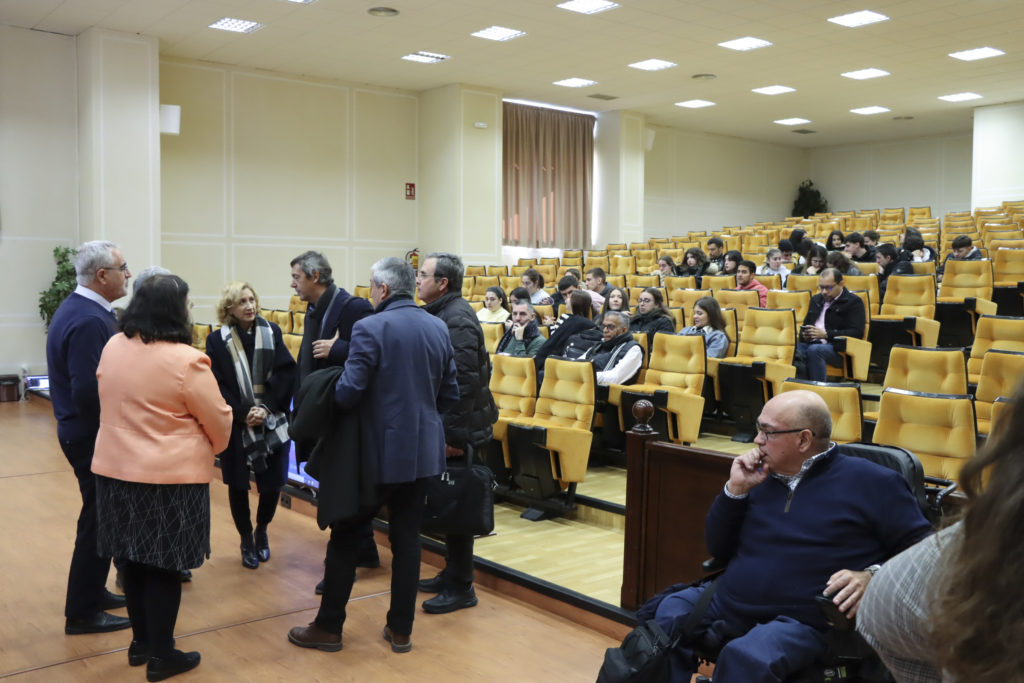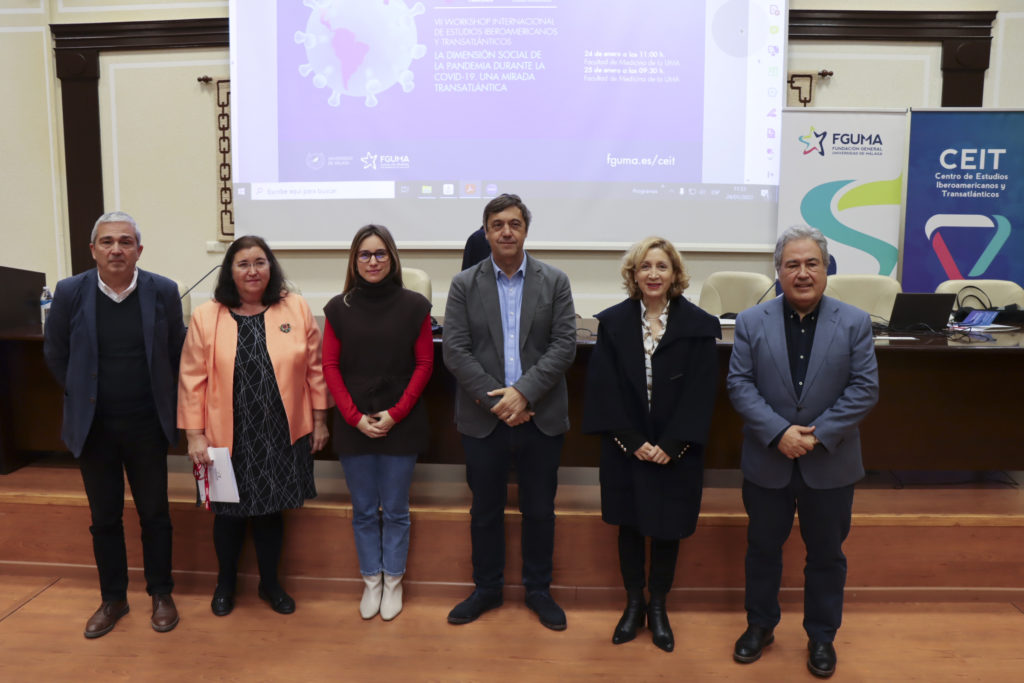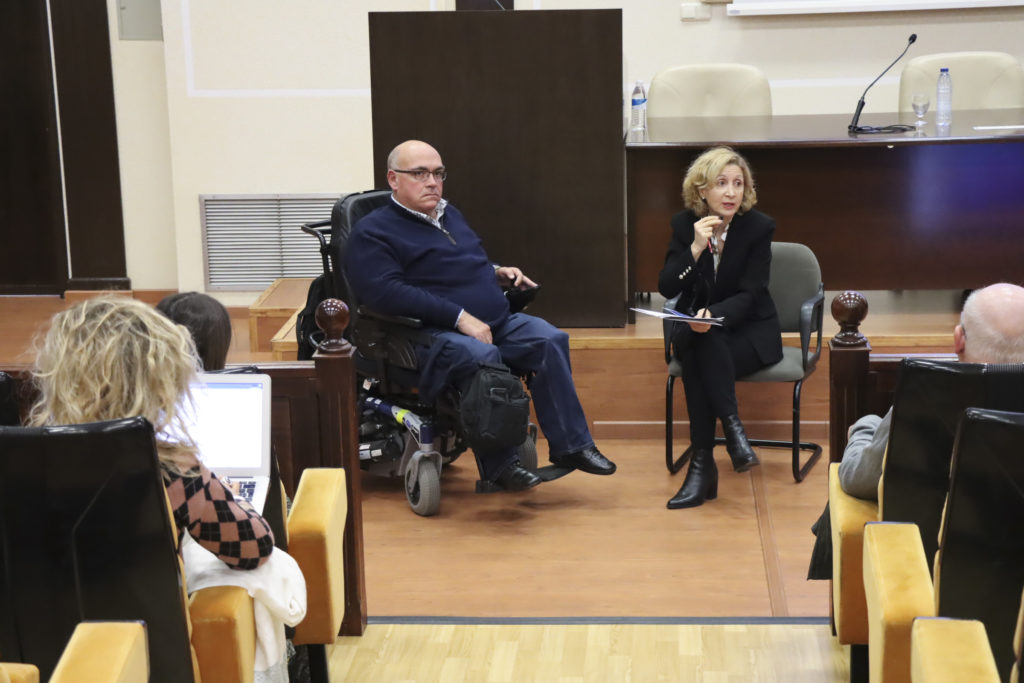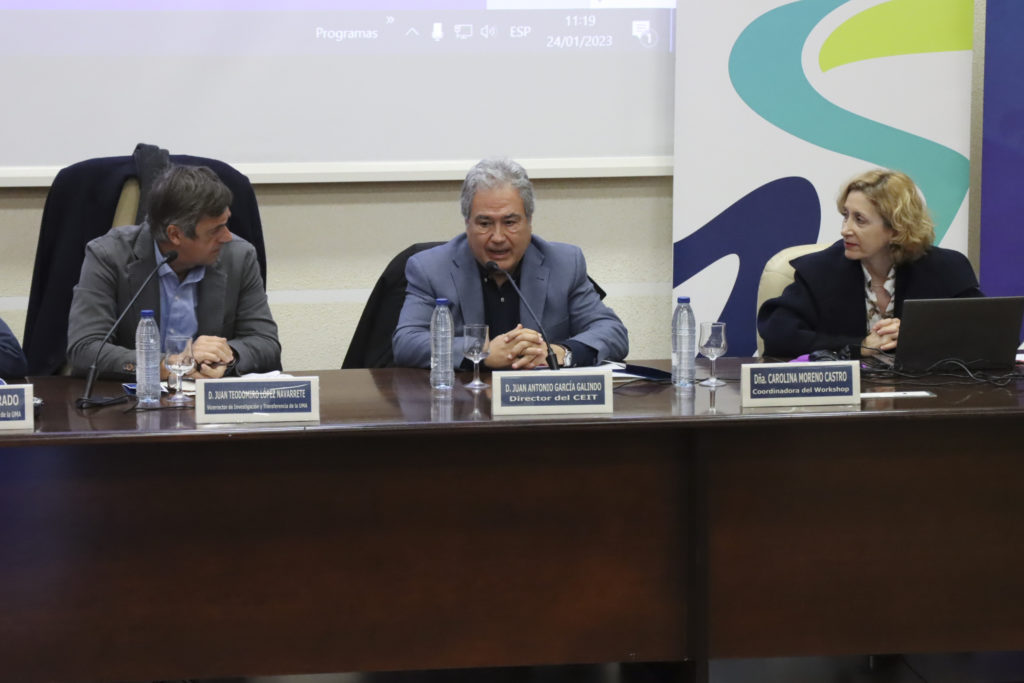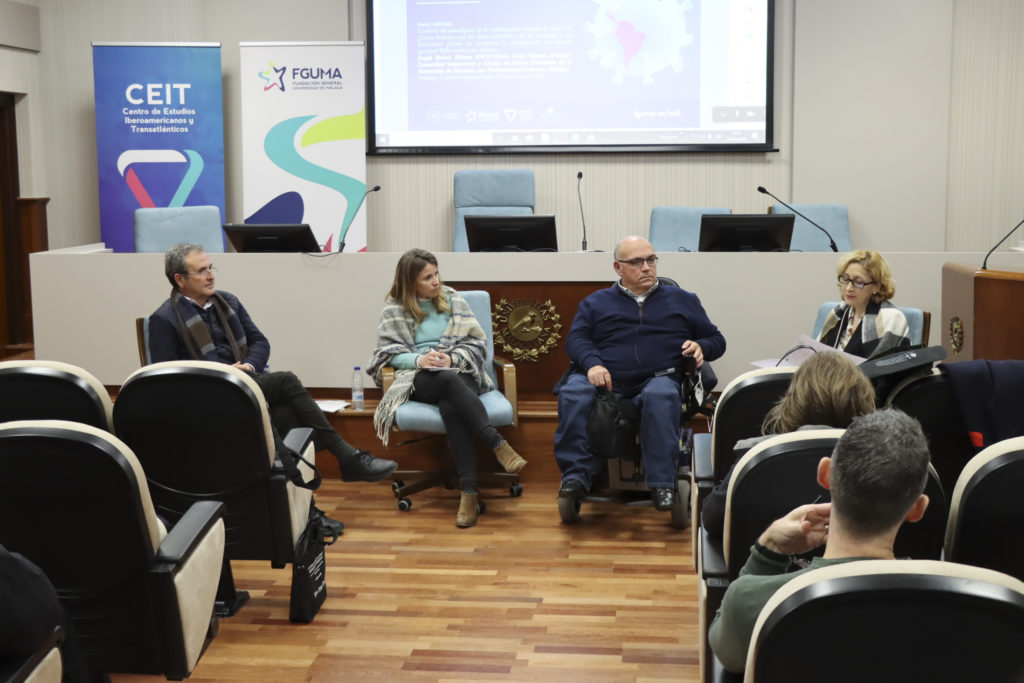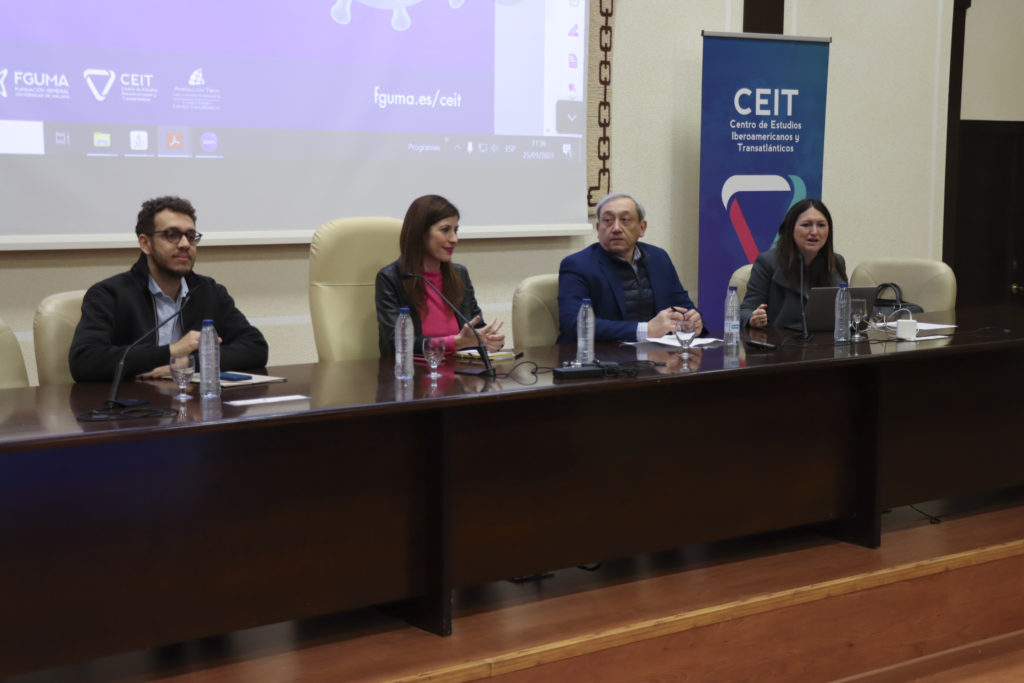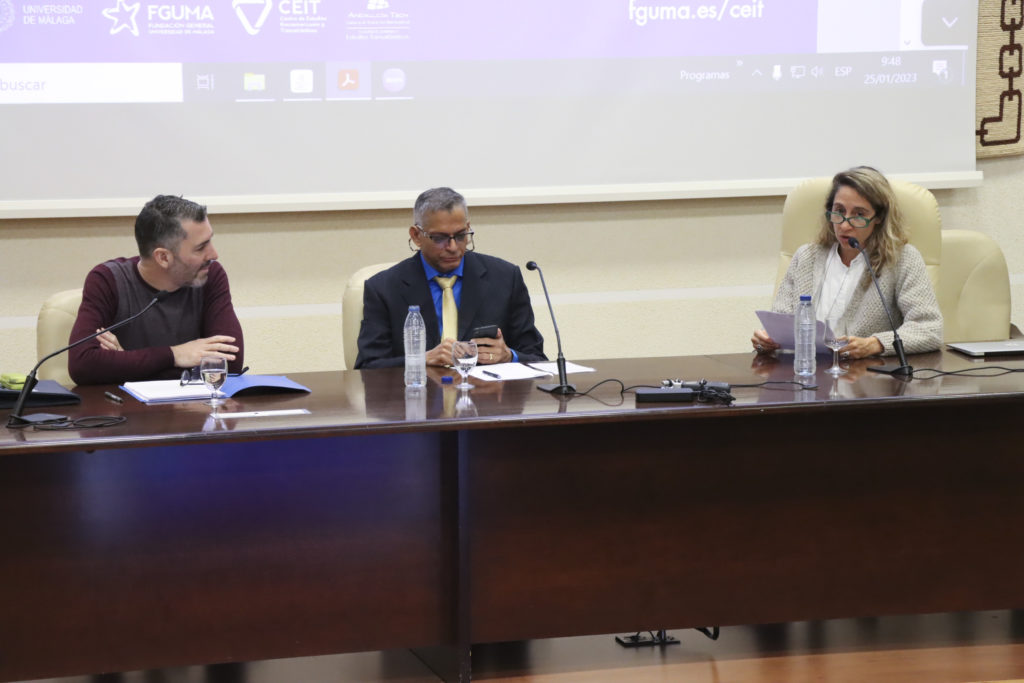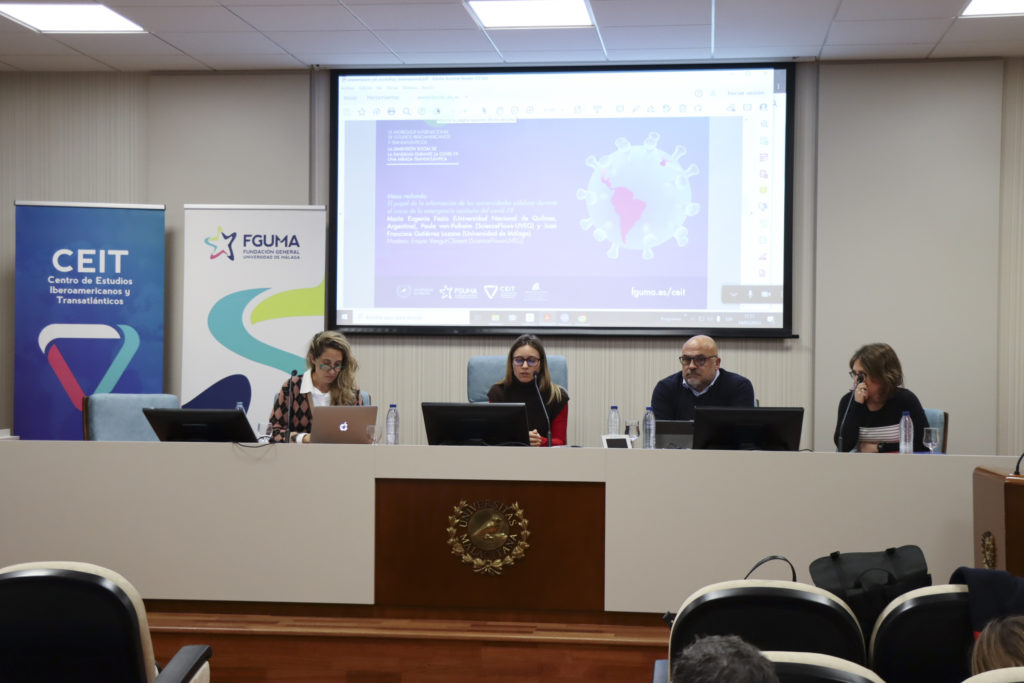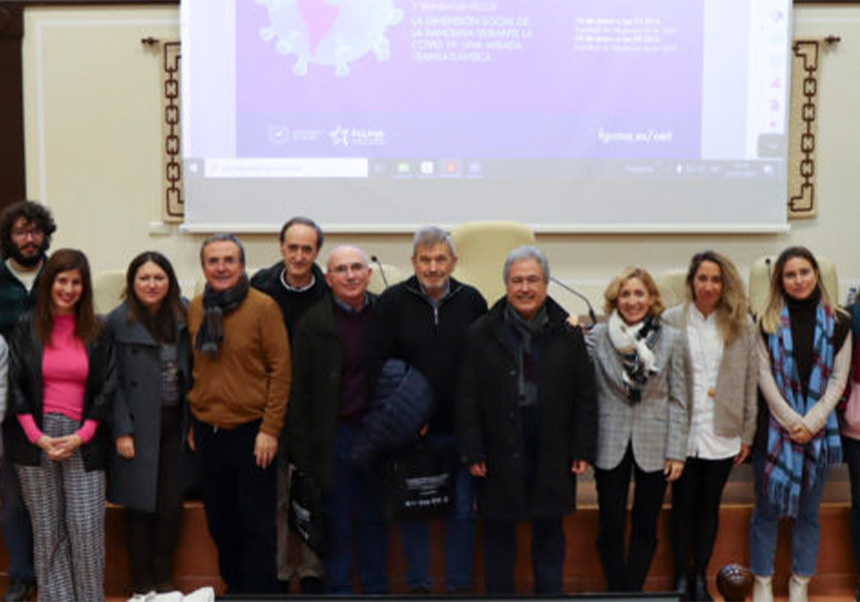
The conferences revolved around the social facet of science, revealing the importance of incorporating different social agents to the scientific research and the at the knowledge transfer to society.
The Centre for Ibero-American and Transatlantic Studies (CEIT) from the General Foundation of the University of Málaga (FGUMA), through the María Zambrano Center for Transatlantic Studies, together with the International Network AMZET, and the UV research group ScienceFlows, has held on 23 and 24 January its 7th International Workshop on Ibero-American and Transatlantic Studies, under the title the social facet of the pandemic during covid-19. A transatlantic view. The conferences have been coordinated by Carolina Moreno Castro, full-time Journalism university professor and Principal Investigator of the ScienceFlows group from the UV, and by Paula von Polheim, reasearcher and member of the UV research team ScienceFlows.
Press publications
The main goal of the 7th International Workshop on Ibero-American and Transatlantic Studies has been to analyse, from a social sciences perspective, how has the covid-19 pandemic affected research, the transfer of knowledge to society, and the individual behaviours and attitudes of people. Although the SARS-CoV-2 infection was firstly identified in 2019, first in Europe and then arrived to the American continent, many of the situations generated were similar on both continents, and precisely by not watching what was going on in other countries there was time to take action and prevent the great social impact it produced.
The inaugural table was composed of the vice rector for Research and Tech Transfer of the UMA, Juan Teodomiro López Navarrete; FUGMA general director, Diego Vera; CEIT director, Juan Antonio García Galindo; Vice-Dean of Postgraduate Studies, Research and Tech Transfer of the Faculty of Medicine of the UMA, Inmaculada Bellido, an the Workshop coordinator Carolina Moreno Castro. Once presented the 7th Workshop, the general director of the FGUMA has taken the word declaring “the cross-disciplinary character” of this seminar in which “social, interpretation, scientific focalization, sum of universities, of approaches and efforts combine together”. In turn, the director of the CEIT remarks the “qualitative jump and of content” that this activity means in the programming of the centre. What is more, he underlines that “health is a common good and we must work to achieve a healthier world”. The vice rector of Research and Tech Transfer insists in “not forgetting about everything that has to do with the research” since “it is most important than anything”. Finally, the coordinator of the Workshop has manifested her special interest “on the correlation of Sciences and Social Sciences after everything that has happened with the pandemic”, since “we find it an essential connection for an important social debate”.
Source: Centre for Ibero-American and Transatlantic Studies (CEIT)
The inaugural session started with the conference ‘Hacer de la interrupción un camino nuevo’, led by the full university professor of Molecular Biology and Biochemistry of the University of Malaga, Antonio Heredia Bayona, in which the presenter has shared his personal experience throughout the posterior months after confinement due to the alarm state for health emergency. Heredia Bayona signalled the importance of the knowledge transfer to next generations and to the people that conform the institutions to confront possible health outlooks. Later, Moreno-Castro, from the Research Group ScienceFlows and the Universitat de València, has presented the international work groups participating in the activity along with the rapporteur the Dr María Eugenia Fazio, professor and researcher from the National University of Quilmes (Argentina). The 7th Workshop has been configured by five panel discussions. The first of them counted with the presence of the doctor Ángel Blanco López, full university professor of Didactics of Experimental Sciences and member of the gorup ENCIC from the University of Malaga; the researcher Lucía Páramo, from the Joint Research Unit Biomedical Imaging Unit FISABIO and the Generalitat Valenciana; and the doctor Alfredo de Pablos, president of the Association of Patients with Chronic Pluritologies from Malaga. The researchers have demonstrated the paradigmatic changes on reseatch during covid-19, emphasizing on the scientific education of society. Next panel discussion, whose moderation was in charge of the doctor Empar Vengut, from the Research Group ScienceFlows and the Universitat de València, has dealt with the paper of the public universities information during the start of the health emergency for covid-19 and the scientific knowledge that they transfer. On this table, the doctor María Eugenia Fazio, from the National University of Quilmes (Argentina); the researcher Paula von-Polheim, from the research group ScienceFlows and the Universitat de València; and the doctor Juan Francisco Gutiérrez Lozano, tenured professor from the University of Malaga, have participated.
The third table began Wednesday morning with the debate about the effects of infodemy about health and the confidence of people in the context of Iberoamerica. It has been moderated by the doctor María Eugenia Fazio and has counted with the presence of the doctor researchers Rafael Tuesca, from the University of the North in Barranquilla (Colombia) and Sergio Rodríguez, professor of the University of Barcelona. Continuing with the workshop, the forth table, moderated by the full university professor in Journalism from the UMA Bella Palomo, she has talked around the role of the organisations in charge of verifying the information during covid-19 in Iberoamerica. This time, the integrates of the table have been the doctor researchers Igor Waltz, from the Instituto Nacional de Comunicação Pública da Ciência e Tecnologia de Río de Janeiro (Brasil); María Sánchez, professor from the University of Malaga, and Antonio Méndez, director of the journal Málaga Hoy.
The meeting has concluded with a last table about food during covid-19, how misinformation has been one of the most concerning topics and the repercussions of food production chains in Iberoamerican countries. Moreno Castro, besides moderating the table, has been the presenter along with the doctor Aurelio Cabello, from the Group ENCIC from the University of Malaga and the researcher Paula von Polheim, from the Universitat de València. At the end of this last talk, Moreno Castro, has signalled a proposal with various recommendations and suggestions that have been put in bold during the workshop and that will shortly be published in the form Policy Briefs.
Images:
Images:


